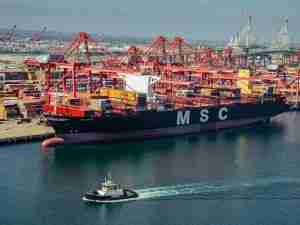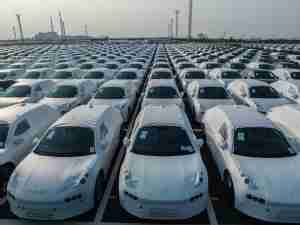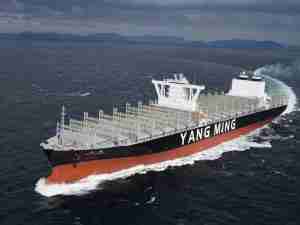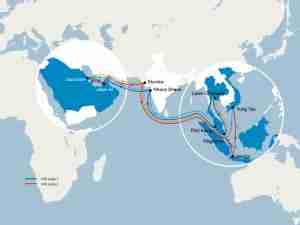Sustainability of the world's shipping industry was the theme at the BIMCO General Meeting in Vancouver, Canada, 6 - 8 June 2011 and it was something delegates wanted to talk about.
Opening the series of presentations and panel discussions was Dr. David Foot, author of 'Boom, Bust & Echo' and Professor Emeritus of Economics, University of Toronto, Canada, who told delegates that because of fewer births in Europe and Japan in recent years those countries are on the decline as global economic powers while countries such as Brazil and Indonesia are beginning to emerge as major economies. As well, China, with its 1.25 billion people is facing a declining number of births due to government policy and, in the near future, will have fewer young workers who will demand higher wages and, as a result, could make China less competitive internationally.
Countries with a shortage of innovative and technically proficient young people, he said, may want to consider bringing in older, more experienced, people on a part time basis as part of the workforce.

H.E. Jose' Maria Figueres, former president of Costa Rica and now Chairman of the Carbon War Room told delegates that we live in a world of 'planetary limits' and major shifts in policy must be made if dramatic changes in global temperatures are to be avoided. Figueres said one of the most important steps government and industry could take would be to 'put a price on carbon.'
Dr. Hermann Klein, Chairman, Executive Board, German Society for Maritime Technology and Vice Chairman, International Association of Classification Societies, said the shipping industry itself holds the keys to greater environmental sustainability by operating ships with improved hull designs and better efficiencies at slower speeds. However, even with these changes, he said, the world's industry will still require new, and often radical, ideas to meet the challenges.
At present present the options available to industry to meet these challenges are:
- Hull design.
- Engine design.
- Schedule and routing.
- Energy sources (biofuels, gas, oil, LNG, nuclear).
Whichever energy source is selected, Klein said, it will have to provide energy efficiency, reduced environmental impact and a lower, competitive, cost.
'Most shipping companies are under cost pressure,' he said, but they do have a number of options at hand that cost more or less nothing in the new building stage.
Klein also said some classification societies, including his, now offer services to shipyards and ship owners to support them in optimising a vessel.
'We can carry out calculations (to determine) how to reduce the resistance of the vessel and computer simulated calculations that can compare about 10,000 different hull forms to find out where the real obstacle is. A couple of years ago this was not possible.'

However, in a videotaped presentation, Dr. Sun Jia Kang, Vice President, COSCO Group, China, said sustainability for the shipping industry is not entirely about technical measures, it is also about people and the present shortage of seamen requires targeted training. He said business leaders who want to see their companies survive for future generations need to concentrate on hiring young people. 'Sustainable technology without the right mindset of the people using it is useless,' he said. 'The younger generation picks employees by their environmental DNA and irresponsible acts are not tolerated.'
Kang also said sustainability is about inspiration.
'Sustainability in a company does not just drop into your hands,' he said. 'It needs numerous trials and errors to find the right track.
'I'm convinced sustainability is not; first and foremost; a cost factor but an investment in the future. The training and the technical investment in awareness and improvement of sust










